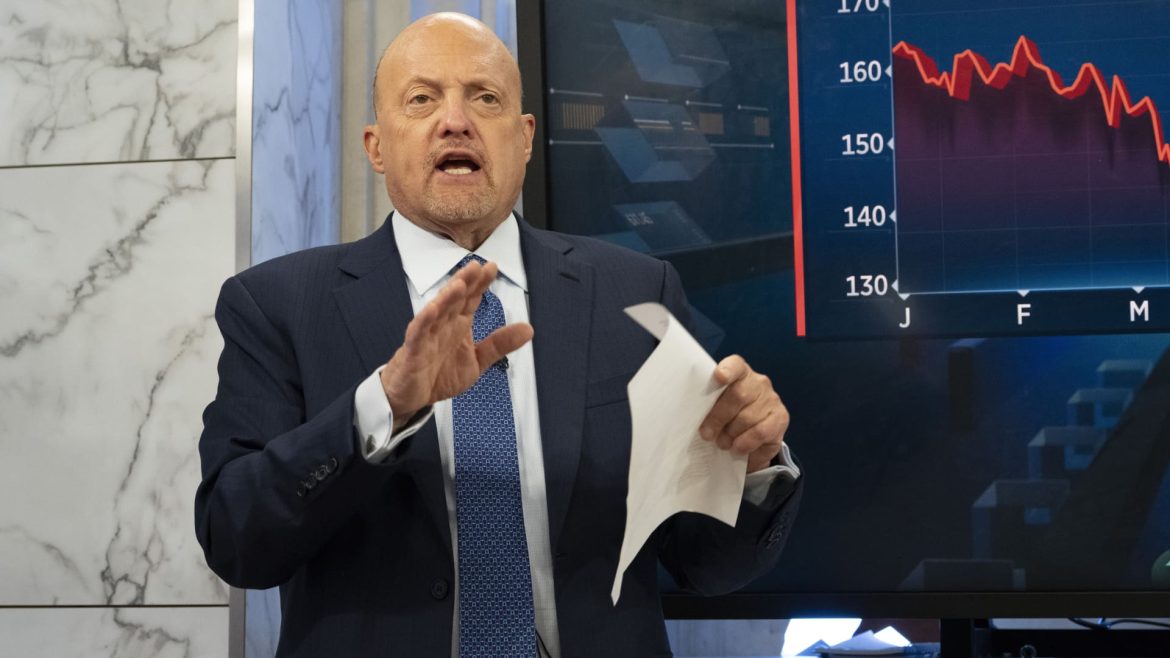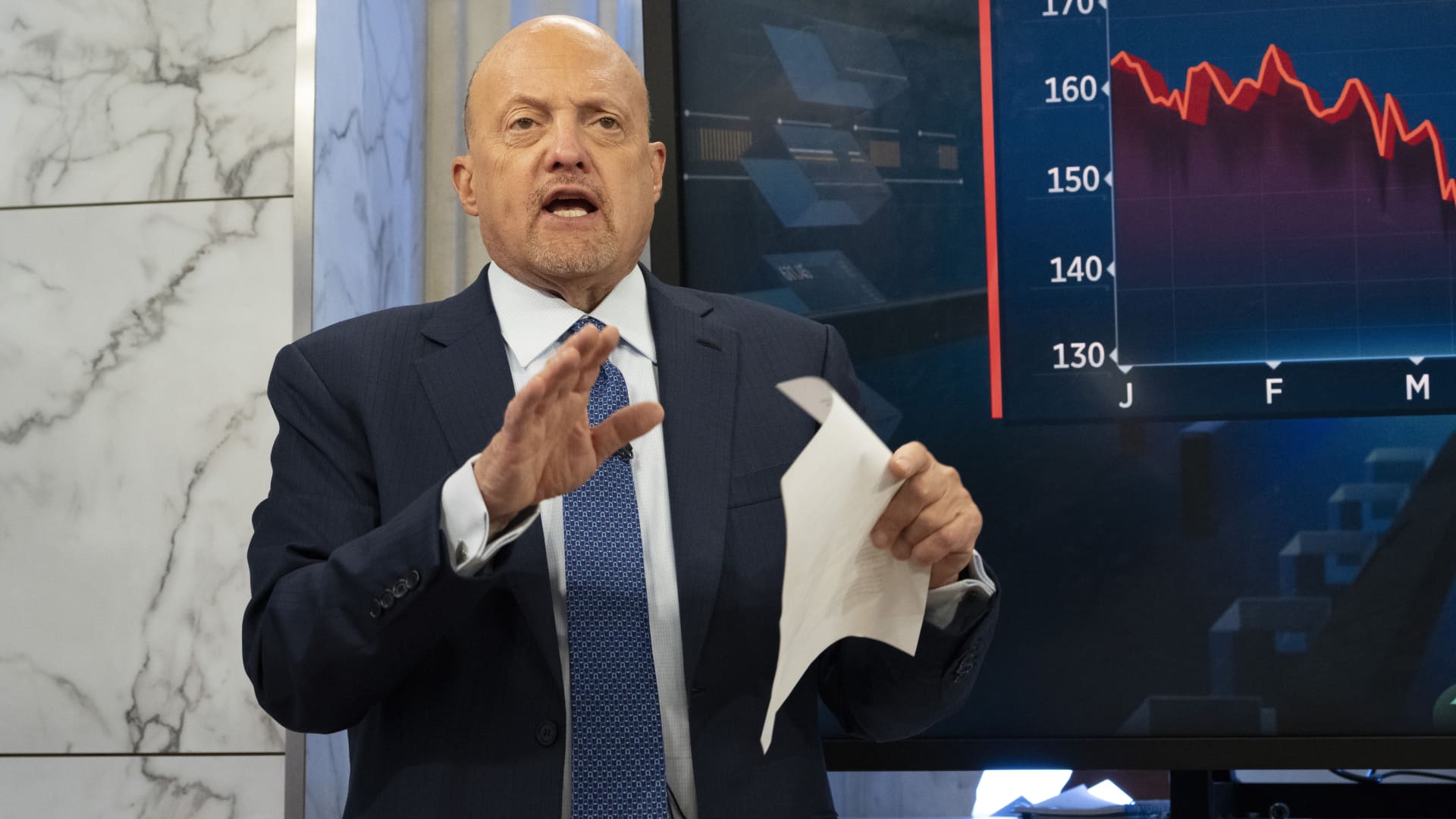Jim Cramer’s Complex Relationship with Trump’s Trade and Tariff Policies: An In-Depth Analysis
Jim Cramer, the well-known CNBC market commentator and “Mad Money” host, expresses a tumultuous and nuanced stance toward former President Donald Trump’s trade policies, particularly tariffs. His evolving commentary reveals tensions in balancing economic pragmatism, his skepticism of free trade, investor sentiment, and political-economic realities. This analysis explores Cramer’s perspectives on key issues surrounding Trump’s tariffs, trade wars, market impacts, and the broader U.S.-China trade conflict.
—
Cramer’s Initial Support and Later Disillusionment with Trump’s Tariff Strategy
Cramer has long expressed skepticism toward free trade agreements, often critiquing them for their harm to American small towns and workers. He initially supported Trump’s hard-line approach to trade, especially against China, viewing tariffs as a tool to correct trade imbalances and restore jobs domestically. Echoing themes from Trump’s campaign rhetoric, Cramer stated, “I hate free trade” and saw Trump’s tariffs as a necessary disruption.
However, this initial backing later gave way to profound frustration. In multiple appearances, including a candid CNN interview, Cramer described feeling like a “sucker” — disillusioned by the way the administration executed tariffs. He indicated that while sharing the skepticism of unfettered free trade, the tariff implementation was “ill-advised” and “screwed up.” Cramer voiced disappointment that the administration’s approach lacked clarity and coherence, undermining investor confidence and market stability.
—
The Emotional and Market Toll: “Administrator of Pain”
Cramer characterizes Trump as an “administrator of pain” in the context of renewed tough trade talk and tariff escalation. This phrase captures the market anxiety generated by unpredictable tariff announcements, reopening trade disputes with the European Union, China, and others. Cramer warns investors against emotional volatility, urging a level-headed approach amid ongoing uncertainty.
His commentary highlights how tariffs have become a source of market tension—leading to plunges, rebounds, and confusion. For example, stocks dipped sharply following Trump’s delays on China trade deals, underscoring the sensitivity of markets to tariff rhetoric. Cramer’s view is that trade-related uncertainty stymies business hiring and investment decisions, weighing down economic momentum.
—
Economic Risks and Political Stakes: Weighing the Costs
On a macroeconomic scale, Cramer and other experts warn that Trump’s tariff policies carry risks akin to triggering a “Black Monday” style market crash, given the interconnectedness of global markets. Trump’s imposition of “reciprocal tariffs” is seen by Cramer as more punitive than balanced, focusing on hurting trading partners rather than crafting constructive trade terms.
Politically, Cramer notes the administration’s intent: shifting U.S. trade relations to favor American interests and “bring jobs back.” He recognizes that Trump is not trying to wreck the economy outright but driving tough negotiations with a long-term payoff in mind. Cramer even acknowledges that tech executives are privately willing to endure short-term pain for future benefits, highlighting the complexity of trade-off perceptions across industries.
—
Impact on Key Sectors: Tech, Manufacturing, and Beyond
Cramer points out specific industry challenges arising from tariffs. Big technology companies such as Apple and Nvidia have pledged massive investments (~$500 billion each) to ramp up U.S. manufacturing. Yet, Cramer suggests these commitments seem to lack corresponding government incentives, such as exemptions from tariffs or regulatory support, creating tensions between corporate strategies and policy rigidity.
He also emphasizes the costs paid by small towns and manufacturing-dependent regions, lamenting the destruction wrought by prior trade regimes emphasizing cheap imports. Cramer’s advocacy for a more balanced approach exposes the difficulty of reconciling market demands for low-cost goods with the socio-economic imperatives of American job preservation.
—
Investor Confusion and Cramer’s Advice Amid Shifting Trade Policies
The White House’s “constantly shifting stance” on tariffs aggravates market unease, as Cramer repeatedly notes. He calls out the lack of clarity as a prime driver of stocks’ recent declines and volatility. Cramer’s practical guidance to investors involves strategic timing — selling stocks when they are “up,” not “down,” during trade uncertainty.
His analytical lens urges a focus on resilience and long-term wealth building despite headline noise. He also underscores that investor sentiment could improve if Trump clarified his tariff intentions, suggesting how much market psychology is tied to policy transparency.
—
The Contradiction of Anti-Free Trade and Pro-Tariff Stances
Cramer’s identity as an outspoken non-free-trade advocate yet proponent of tariff strategy creates an interesting ideological tension. While often critical of free trade for its downsides, including offshoring jobs, he faults the administration’s tariff rollout execution rather than the concept itself. His position, therefore, represents a pragmatic backlash to globalism rather than wholesale economic nationalism.
Cramer maintains that Trump “has them where he wants them” in the China trade conflict but simultaneously warns that escalating tariffs in a fragile economic environment risks a recession. He advises caution: “hold off on another trade war until the economy’s in better shape.”
—
Conclusion: A Cautionary Tale of Tariffs’ Double-Edged Sword
Jim Cramer’s commentary on Donald Trump’s trade and tariff policies provides a window into the complexities of contemporary economic nationalism — a mix of hope, disappointment, opportunity, and risk. His transformation from a tentative supporter to a vocal critic of tariff implementation captures the broader investor and public struggle in assessing disruptive trade measures.
Cramer’s acknowledgment of tariffs as a tool to reclaim American economic strength is tempered by realism about flawed execution, market pain, and political uncertainty. His insights stress the importance of strategic investing, policy clarity, and balanced consideration of trade-offs between cheap imports and domestic job creation.
Ultimately, Cramer’s views serve as a reminder that tariffs are a double-edged sword: wielded without precision, they can fracture markets and erode confidence; when thoughtfully applied, they may realign economic priorities. For investors and policymakers alike, the lesson lies in navigating this fraught terrain with both caution and conviction.





